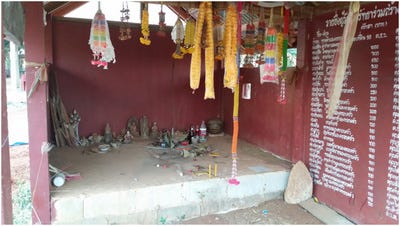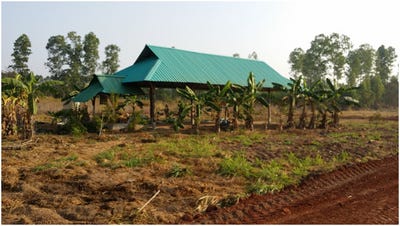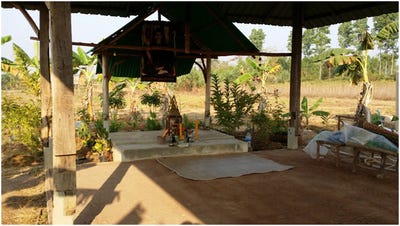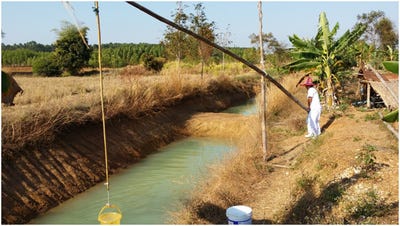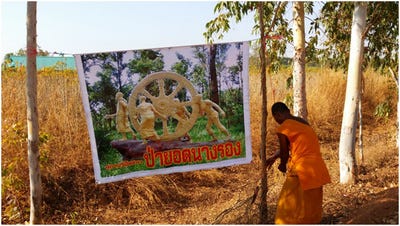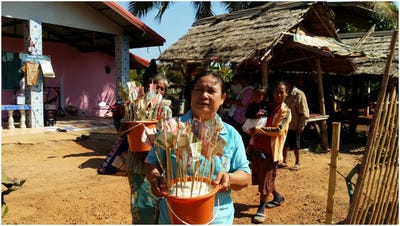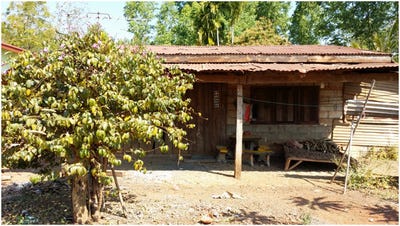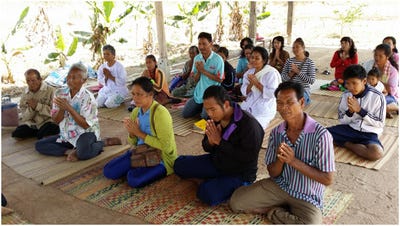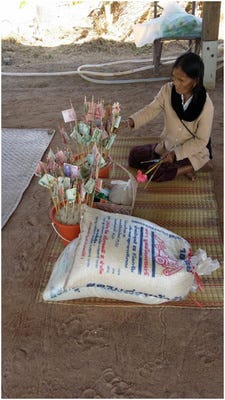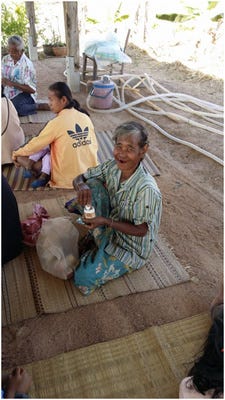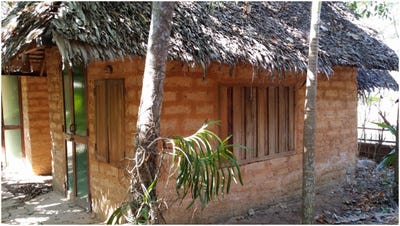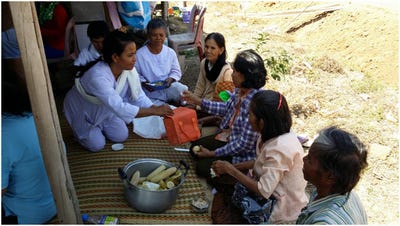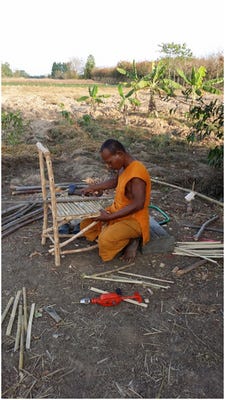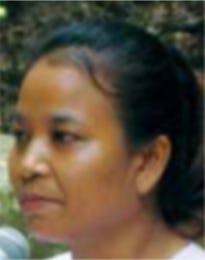Bringing Dhamma to Rural Thai Communities
It is often harder to move human will than it is the earth.
Written with Kittirat Yothangrong
In one far away community near Sakaeo, approximately 350 kilometers North-East of Bangkok where the current batch of politicians out on the streets making their stand aren't thinking about, is the place I was brought up in. I left when I was 13 years old to earn and income so I could send home money to my parents, and decided to come back and do something for the community still here.
In Sakaeo it doesn't rain for four months of the year, and water which most of us take for granted is a scarce commodity. Electricity reaches some of the families in the little villages, while the others rely on kerosene and car batteries as a source of power for lighting.
Existence is basic and simple, where the only stressful thing is the fear of disturbing a hidden king cobra which might throw a fatal bite out of fright.
The only source of local income is agriculture with basically only two choices of growing either sugarcane or eucalyptus, as its too dry to grow much else. The soil is very poor and dry of all moisture for much of the year, where most of the vegetation is stained by the red dust blowing around the fields.
Growing anything is very difficult here, symbolic of the destiny of the community.
There aren't many supplemental income programs operating like "One Tambun One Product" (OTOP) which has been successful in many other communities. So most of the young go away to work in factories, as taxi drivers, hawkers, or in bars. Most young leave in search of a better life somewhere. Those who chose to stay just live life here much as people always did.
Most people don't complete secondary school, being needed by the family to seek out some form of income.
The surrounding community is both physically and spiritually poor.
It's a multidimensional poverty trap.
There are very few wats or temples here. Monks don't even want to come and stay in this area, so there is a drastic shortage. People don't want to donate to wats in this region, preferring to support famous and well known monks in the more popular temples in Thailand.
Local villagers are still very animistic, preferring to make offerings to the village or land spirit which decides the destiny of those living under "his" influence.
Spiritual guidance is deeply lacking here.
And I believe the level of spiritualism has some important bearing on the level of material poverty, as it influences how relationships are governed, i.e., high divorce rates, drinking levels, and views towards life generally.
Dhamma is something that must be relevant to everyday life. And that's why we hope to focus on helping people implement the Noble Eightfold Path in their daily lives, as a path to personal enlightenment. Being in a rural area takes away the distraction of busy urban life and keeps things simple.
I believe therefore that some form of spiritual guidance is needed within my community.
In addition, unlike many other communities in Thailand, those who contract cancer or HIV must rely upon their own resources at home. They most often dying alone without any love or compassion by those around them. There is no assistance to deal with autistic children and the elderly with advanced diabetes and dementia.
There is a lot to be done in Sakaeo.
This project is also teaching important lessons to all of us involved. There are so many things to learn. How to make a decent access road. How to build a structure. How to live without a source of electricity. How to survive on limited sources of water. How to become self sufficient. How to get others involved. How to engage the community.
Finding willing volunteers and teachers is a challenge. Most want to go to a place that offers personal comfort with beautiful surroundings, not a dustbowl in the middle of nowhere.
Life here is about going back to the basics, doing everything by hand once again, embracing simplicity, rather than living in complexity.
However earlier this week we had our opening for the community. A small number of villagers came alone and brought rice, honey, washing powder, and other necessities to donate to the centre. This support was probably forthcoming because, I, one of the daughters of this village, came back and cared. Seeing their attendance makes the whole project worthwhile.
The centre cannot rely on donations of the local villagers because they are too poor. Funds must be sort from wider a field, where we will have to compete against the well established and more high profile centres around the country.
The Yothangrong Spiritual Centre is a grossly underfunded, undermanned, and under-resourced project that will go on regardless.
However in the future we hope to develop some vocational programs to help villagers create some supplementary income. We also hope to develop mud house architecture to show that dwellings can be built out of indigenous materials, and develop organic gardening to promote a self sufficiency economy.
Building your own dwelling and producing your own food has a connotation of spiritualism about it, bringing a sense of self satisfaction that few people have the privilege of feeling anymore.
We hope to reach out to the community here, with these messages we feel are important in life.
Thus we believe that lay people have a major role in playing in teaching this everyday Dhamma to the community. Somehow the message may be more convincing if it comes from their own. Our only monk, is one who comes from the community. Maybe weak on theology, but able to pass the message through by showing practicality.
Growing a simple tree is symbolic of the tough job ahead.
This centre will be built only upon passion and perseverance.
It is often harder to move human will than it is the earth.
KITTIRAT YOTNANGRONG or Akoi as she is known, is one of the very few people who have been a Buddhist nun and a runner-up in the Miss Southern Thailand Beauty Quest as a “mature” contestant. She is a ‘practical’ vegetarian who believes in herbs, healthy living, and meditation. An avid yoga fanatic, Kittirat is also an organic farmer. She regularly speaks to community groups in Malaysia and Thailand on empowerment, health through herbs, and spirituality.
Click on subscribe so articles can be directly emailed to your inbox:
Originally published in Ovi Magazine 1st February 2014





